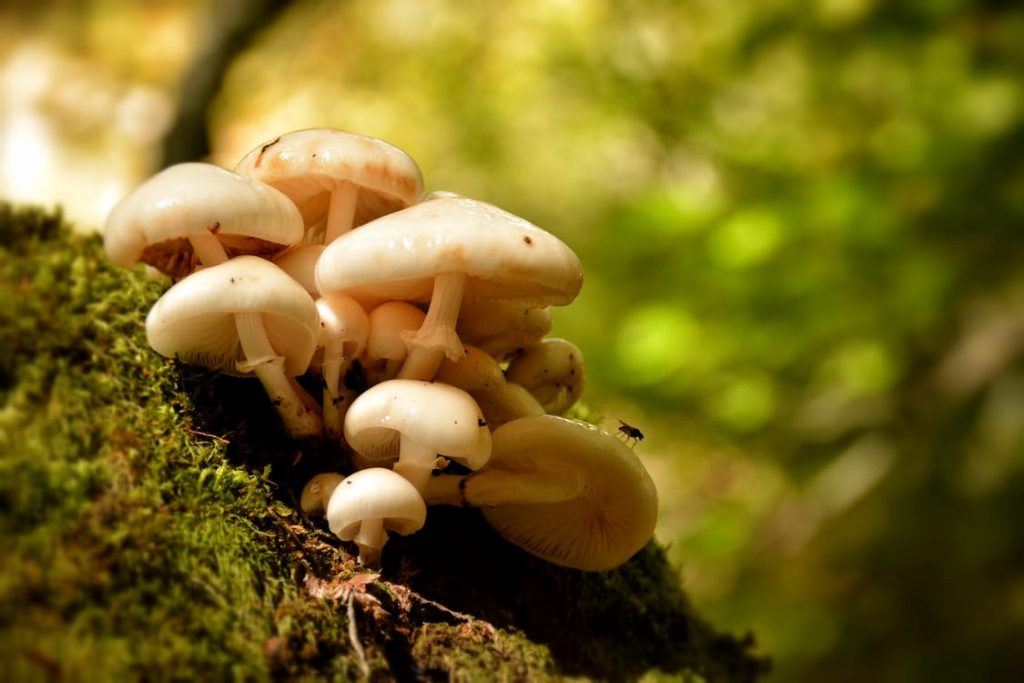HOW MAGIC MUSHROOMS CAN CHANGE PERSONALITY
According to new research, even a heavy dose of magic mushrooms can change a person’s personality for a long time, maybe even permanently. One study shows how psilocybin, the psychoactive ingredient in magic mushrooms, can help create a more open personality. These effects can last for more than 14 months. Read on to find out all about how magic mushrooms can modify our personalities.
THE INTEREST OF SCIENCE IN HALLUCINOGENIC SUBSTANCES
One can argue about whether the earlier tests with hallucinogenic substances can really be called “scientific”. In the 1960s, there were many “LSD tests” in connection with the burgeoning counterculture and drug advocates like Timothy Leary. However, established science did not become aware of this until much later. It is only within the last decade that we have seen serious research into the effects of hallucinogens.
Nowadays such experiments are only carried out under strict supervision. As in the past, scientists and researchers still have problems getting permission for their experiments. Still, and even though today’s tests aren’t as fun as they were back in the 1960s, these substances’ medicinal potential is becoming increasingly evident.
The Massachusetts non-profit research lab of the Multidisciplinary Association for Psychedelic Studies (MAPS) is currently working on how MDMA can be used to treat post-traumatic stress disorder. Psilocybin and LSD are now being investigated in more detail for their effectiveness in treating mental disorders such as anxiety. John Hopkins University postdoctoral advisor Roland Griffiths is conducting a study of the effectiveness of psilocybin in treating anxiety and depression in cancer patients. Another study looking at the potential treatment of addiction through hallucinogens.
McLean asked 51 people about taking psilocybin, the active ingredient in magic mushrooms for the current study. None of the participants had any previous experience with hallucinogens.
A “DOUBLE BLIND STUDY” WITH PSILOCYBIN
For the research, each of the participants attended two to five eight-hour drug sessions. To promote self-awareness, they were blindfolded and music was played in a cozy environment. The volunteer participants only got psilocybin in one session. Neither the participants nor the researchers were told at which session.
In one experiment that was done twice, subjects were given psilocybin and the other time Ritalin, a drug that can mimic the effects of psilocybin without the psychoactive effects.
Another experiment consisted of five sessions in which people were given either a placebo or a varying dose of the drug.
Before each session, the participants had to fill out a questionnaire to measure their openness. One week after their experience, participants should answer the same questions again and then again after 14 months.
The results of the study, published in the Journal of Psychopharmacology, showed that while other aspects of personality did not change, openness increased after the experience. This openness could be observed especially in those people who reported a spiritual experience after taking it. In addition, many participants reported a feeling of strong connectedness combined with happiness, unity and peace.
Mac Lean says it’s probably not just the psilocybin causing these changes. Rather, it is the strong and life-changing experiences that are responsible, no matter how they are experienced. “Many people can use psilocybin to push the boundaries of their thinking about the world,” claims MacLean. She explains that the majority of the 51 volunteers in the study had a spiritual experience and saw a change in openness associated with such experiences. These changes are more significant than the changes that usually occur in adulthood.
The researchers point out that such experiments should not be replicated at home. During the study, the participants were well prepared and were under close supervision for any psychological support. That helped prevent bad trips. Nonetheless, some people reported anxiety, fear, and despair during their experiences.
She says that those kind of strong and deep experiences in an unguarded environment, which turn out to be a bad trip with fear and trepidation, can be quite dangerous. Judging by their testimony, the risk of unsupervised ingestion is not worth the potential reward. Psilocybin is a Category 1 drug in the US, which means that the substance has no reasonable medical benefit and there is great potential for abuse.
The other point is that you don’t know if unobserved ingestion would cause the same changes in openness that were seen in the study. MacLean says her research group was small and most of the participants referred to themselves as religious. So they are already more open than many other people in this regard.
POSSIBLE THERAPEUTIC BENEFITS OF HALLUCINOGENS AND MEDITATION
The next item on Katherine MacLean’s list is researching the effects of psilocybin in combination with meditation. She explains that there may be therapeutic benefits in terms of increased openness that can help people overcome negative thought patterns. She also looks at the relationship between the use of hallucinogenic substances and art. According to her own statement, although this is more of a speculative claim, there may be an indication that psilocybin drives creativity and intellectual performance.

